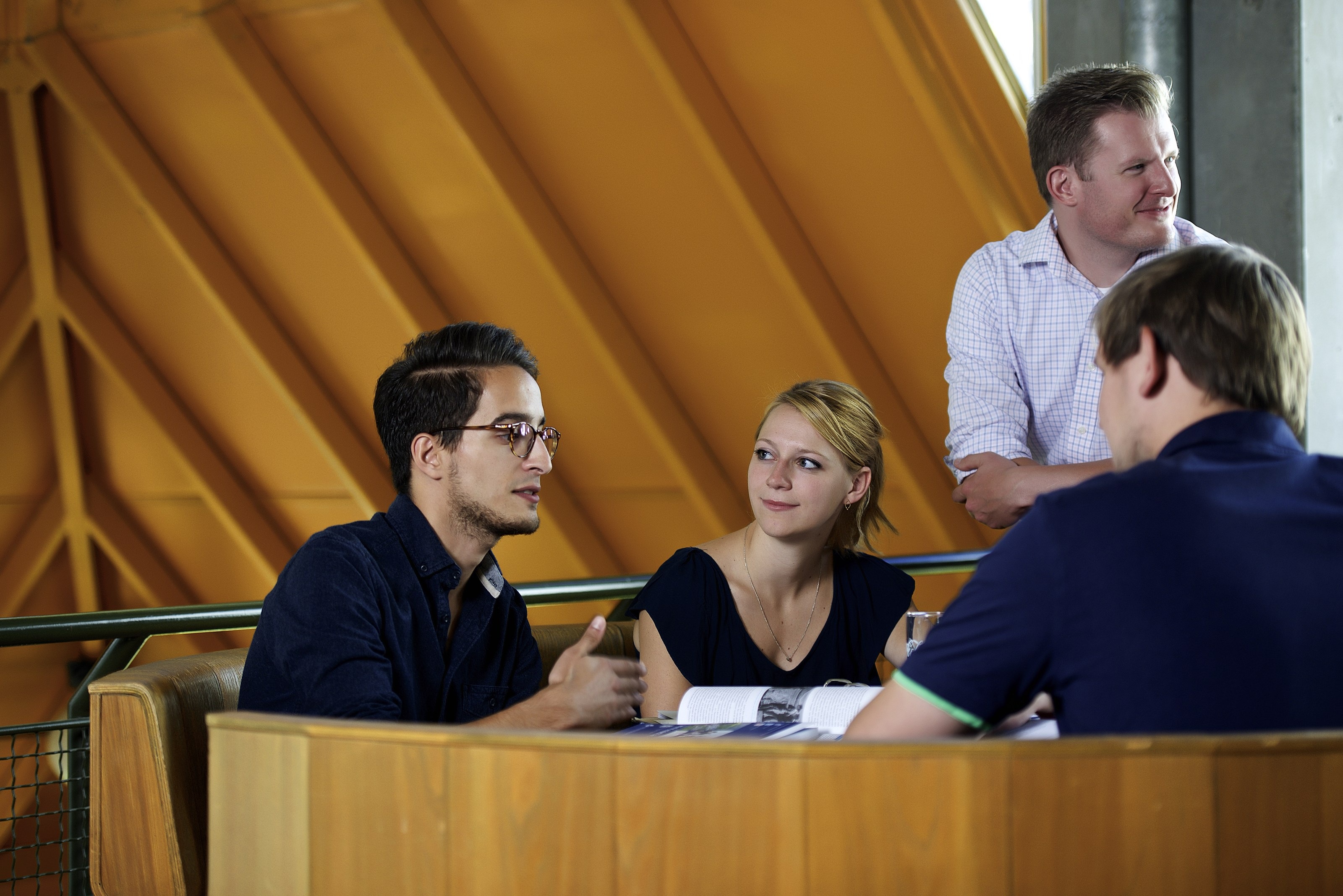
“Integration makes a difference!”
Panel discussion of the Cluster of Excellence “Cultural Foundations of Integration” of the University of Konstanz and the RAUM3 cultural initiative.
How should we handle a type of social diversity which is perceived as enriching but also as rife with conflict? The opportunities and challenges currently posed for Germany as a land of immigration are the topic of the panel discussion “Integration makes a difference!” at 17:30 on Sunday, 8 May 2016. The invitation to the event, which will take place in the Wolkenstein Hall in the Culture Centre of Konstanz Minster, comes from the Cluster of Excellence “Cultural Foundations of Integration” of the University of Konstanz and the RAUM3 cultural initiative.
Debates on migration and integration are stirring up emotions across Germany and throughout Europe as a whole, regardless of political conviction. Whether they are in favour of integration or against it – both the domestic population as well as asylum seekers are taking to the streets, discussing, nurturing fears or hopes. Is Germany obliged to cope, since the beginning of the summer of 2015, with a historically unique situation? “It might appear to us that the refugee question is at present particularly virulent”, says Dr. Özkan Ezli, cultural studies researcher from the Cluster of Excellence. “Yet immigrants came to Germany in the past decades too, between 1988 and 1992 even on a similar scale to today.” At that time, however, there was little talk of integration. “It wasn’t seen as an essential consequence of migration. People expected that most asylum seekers would eventually return to their home countries – in many cases a complete misconception”, explains Ezli, who will chair the panel discussion.
Integration becomes a key factor when we begin to attune ourselves to the prospect of longer or even long-term coexistence. Panel speaker Anna Louban, anthropologist in the Cluster of Excellence, is concentrating her doctoral research on questions of belonging and identification: She conducted her field research on the topic of “How migrants turn (are turned) into citizens” at the offices of German immigration authorities and in integration facilities.
“In practice, it is less a matter of whether asylum seekers feel that they belong to a society as a whole than whether integration in a specific community functions”, explains anthropologist Dr. Franziska Becker. As a mediator, she has been involved for several years in settling conflicts especially in the areas of migration and interculturality in the Berlin suburbs of Mitte and Kreuzberg. Instead of talking about the integration of others, the first step is to talk to people in the specific social habitat.
From initial discussions ensue negotiations on “more” or “less”. It is no longer a case of “whether”, but instead the controllable dimensions of an argument which are the focal point”, adds sociologist Dr. Jörg Hüttermann, who is conducting research on the conflict potential in immigration societies. He gives the following example: “When a mosque is built, there are concrete negotiations about how high the minaret can be or how loud the muezzin is allowed to call to prayer. And this is already a constructive way of dealing with potential conflict”.
The panel discussion “Integration makes a difference!” will take place in the framework of the full-day event “Home from Hearsay” (RAUM³, Konstanz Cultural Office), which is sponsored by the “Baden-Württemberg Summer of Literature 2016”, a series of events of the Baden-Württemberg Foundation.
